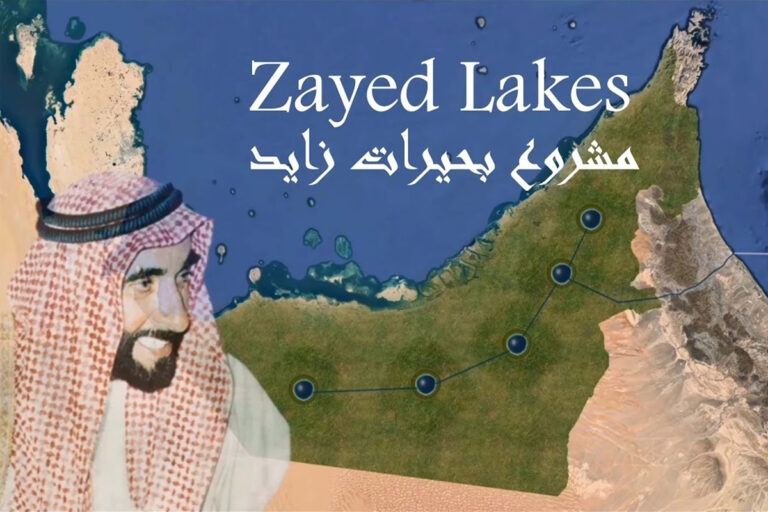UAE Icebergs Project to tip the scales towards climate change in the region and transform the Rub’ El Khali desert (Empty Quarter) into a thriving area The National Advisor Bureau Limited, which plans to tow icebergs from Antarctica to Fujairah coast as a new source of freshwater in the region, revealed that the towed icebergs may cause a significant and radical climate change in the region. Cold air gushing out from a potential iceberg close to the shores of the Arabian Sea would cause a trough and rainstorms lashing out across the Arabian Gulf and the southern region of the Arabian Peninsula all year round if the glaciers persist. The icebergs are expected to have a growing cumulative impact, causing a significantly large-scale and rapid climate change. When the icebergs make contact with an area of humid climate (Arabian Sea), moist air is forced to rise. As it rises, the air cools due to expansion in lower pressure, which in turn produces condensation, ultimately causing the formation of a Vortex that attracts cloudy masses from the Arabian Sea. When enough water vapor is collected in the clouds, they become heavy and fall as rain throughout the year. The icebergs are expected to cause a tremendous increase in the amount of water vapor in the atmosphere and to attract more clouds (around and over the mountain). The clouds will flow around a circular low pressure center above the iceberg, thus creating a vortex. Moreover, having icebergs off the coast of Fujairah will become a massive and unique tourist attraction, and will contribute to cool the East Coast and transform the UAE Desert into thriving green meadows within a decade. Additionally, the melting icebergs will release fresh water into the Arabian Sea, which would help to restore the ecological balance and reduce salinity of the sea, caused by brine discharge from desalination plants, thus restoring biodiversity. The Antarctic ice sheet is the largest single mass of ice on Earth and contains 70 percent of the world’s fresh water. Due to global warming, icebergs break off the Arctic ice shelf, drift into the warmer waters of the ocean and eventually melt, wasting billions of gallons of fresh water. The UAE Icebergs Project aims to take advantage of fresh water from melting glaciers by towing icebergs to Fujairah and leveraging the resulting fresh water. An iceberg contains somewhere around 20 billion gallons of fresh water. Currently, the Antarctic is covered by ten thousand trillion tons of snow and ice.
Contacts info@National-Advisor.ae @nabltd




